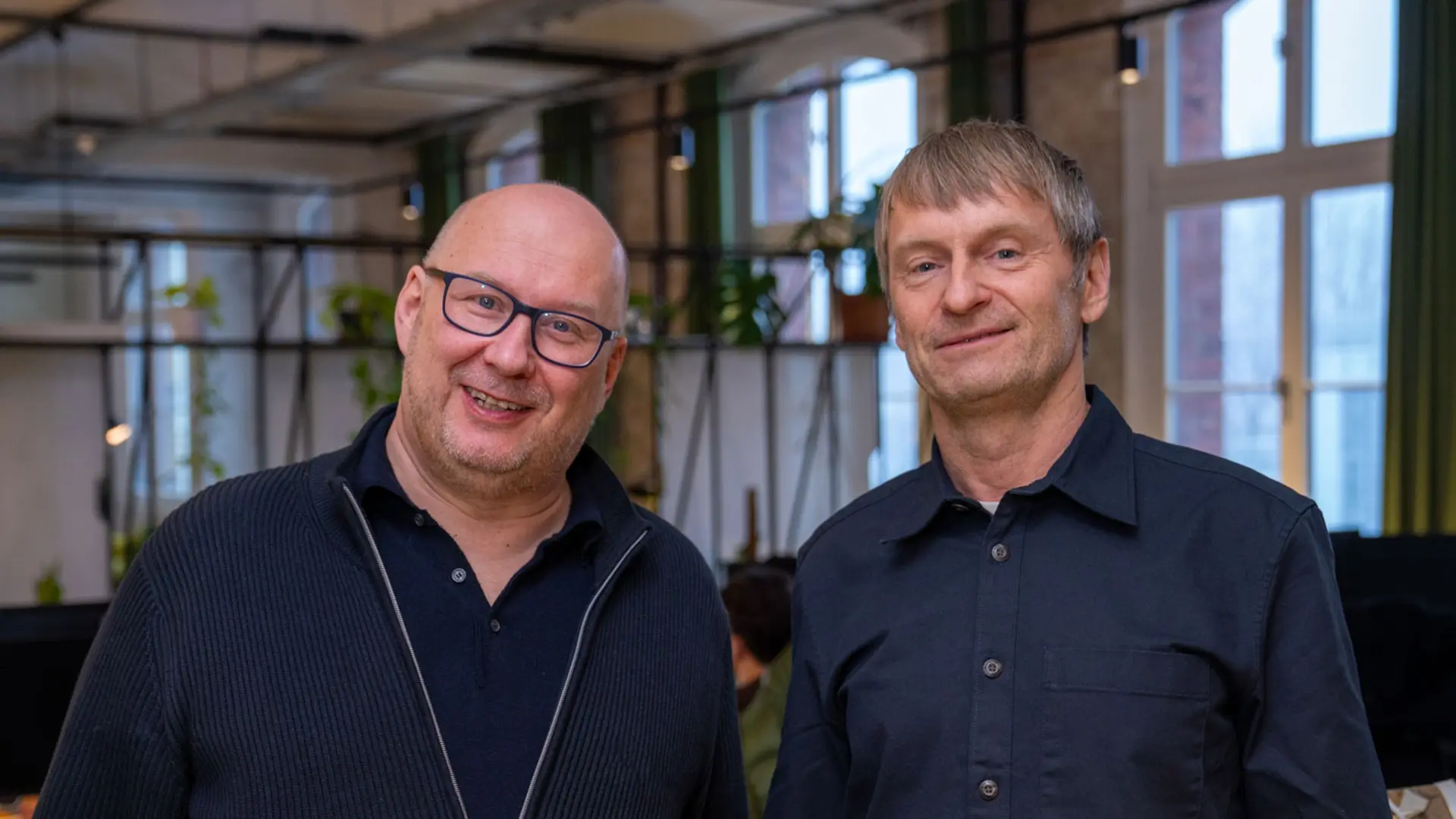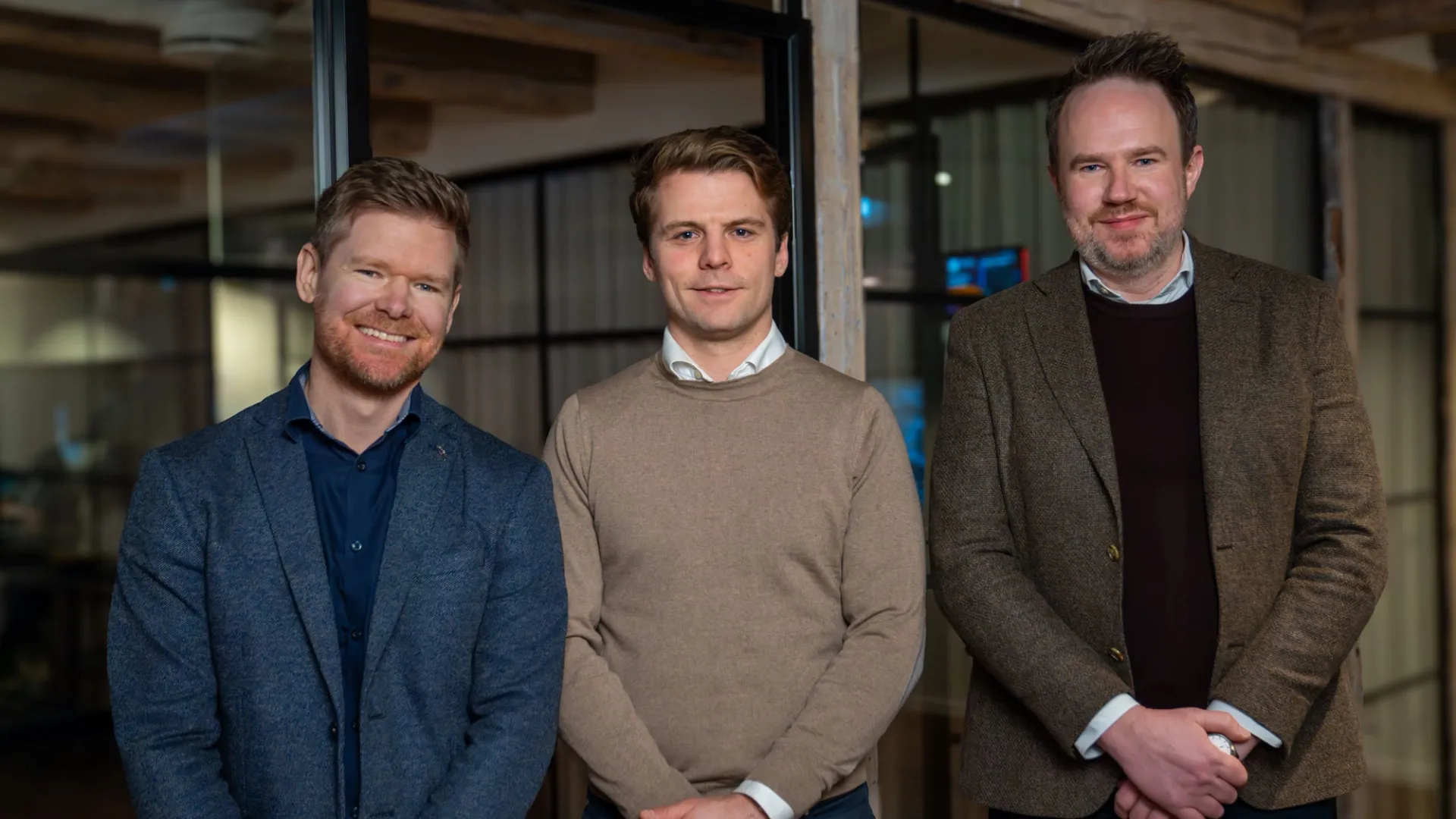Architect Interview: – Norwegians Are Somewhat Bound By Perfectionism

Alexander originally comes from Russia, specifically from Vladivostok. Most Norwegians might have heard the name, but perhaps don't know much more about this city. Vladivostok is located far east in Russia and is heavily influenced by being the headquarters of the Russian Navy's Pacific Fleet, and to some extent, the merchant fleet.
Alexander comes from a family with long-standing military traditions, and for him, growing up, it was completely natural to think that this was the direction he would also take when he was old enough. But fate had other plans.

Alexander grew up during a time of significant changes in Russian society, which had consequences for his future plans.
Alexander grew up during a time of significant changes in Russian society, which had consequences for his future plans. To support his family financially, Alexander postponed his plans to leave his hometown and follow in his ancestors' footsteps into the Russian military.
As a result, and to make a long story short, Alexander had to ask himself the question: what do I truly love to do? This led him to become a student at Far Eastern State Technical University in his hometown, where he studied mathematics and physics.
With his immense drive to always do his best, Alexander devised a plan to graduate with top grades. He dedicated all his free time to studying and learning, and he succeeded. Alexander graduated with both a Bachelor's "with honors" and a Master's "with honors."
During his studies, he gained access to computers, a rare resource at the time, and learned to program—an experience that gave Alexander a clear understanding of what he wanted to dedicate his life to.

Alexander grew up during a time of significant changes in Russian society, which had consequences for his future plans.
After a few years working in Russia, fate again played a role in a major shift in Alexander's life. His wife received two job offers – one in Moscow and one at UiO in Oslo. The person handling his wife's job application in Moscow went on vacation, the email was not forwarded, and her acceptance of the job did not reach the right person in time.
Thus, Alexander, his wife, and two suitcases moved to Norway. It was a foreign country with different customs and an incomprehensible language. Fortunately, Alexander is a resourceful person, so after some initial setbacks in this unfamiliar country, he landed a job as CTO in a start-up. This was the beginning of yet another journey.
The start-up developed software for the shipping industry, specifically targeting chemical transport. Alexander was a central figure in the company's success, and he is very proud of what they achieved there. They had customers all over the world, solved a problem, and contributed to increased safety in the global shipping industry by smartly and efficiently solving cargo challenges related to hazardous chemical materials.
Eventually, the company was acquired by one of its customers in the USA. Alexander continued with the company, working remotely from Norway for about two years before he and his family were on the move again, this time to the USA.

Alexander has experience as a CTO in a start-up company that developed software for the shipping industry.
The stay in the USA was good, but it didn't entice them for more than two years. Alexander and his wife wanted to return to Norway because they had found the society in which they wanted their children to grow up. Alexander is very concerned with justice, opportunities, and freedom of choice. He had found elements of these values in Russia and the USA, but at the top of Alexander's assessment matrix is little Norway.
So, with wife, children, and suitcases, Alexander returned to Norway and got a job as an architect in a private firm in the healthcare sector.
By this time, Alexander had come to know several cultures better than most people do, and he could form some opinions about workplace culture in these three societies.
– Norwegians are at their core very pragmatic, he says.
At the same time, he also points out that Norwegians are a bit bound by perfectionism.
– My experience is that Norwegians can become even better at communicating. Norwegians are so focused on solving everything themselves. There are good sides to this, but it also brings an inherent fear of not being seen as good enough. So they don't ask for help or just say, 'I can't do this.'
He exemplifies this with coding, where this often manifests as components existing in multiple instances.
– If the developer had dared to ask their colleague, it would have resulted in the further development of an existing component rather than the development of a new, unique component, Alexander explains.
Despite this, Norway wins Alexander's heart. The strength of this long, narrow country lies in the truly important things: openness and opportunities for all. It turns out that we can also find elements of these values in Alexander as an architect.
– In technical architectural work, empathy is important. You must be able to understand the challenges and problems the stakeholders want to be solved. It requires the ability to listen and hear, and to understand their feelings. And then complex problems must be explained simply, which is an important aspect of being a good architect. An architect must have the ability to involve the people who are and should be involved in the project, he explains.
He elaborates:
– It requires a certain ability to communicate on their terms because not everyone has the same interests and everyone has different skills. It is the architect's job to understand the client's domain, translate it into an architecture, and then communicate what has been done back in a language the client understands. Through this work, the premises are set to draw value from the unknown.
Alexander has a wise mantra: "Most things that can bring value lie in the unknown."
– In good architecture, all difficult decisions are postponed. It doesn't help to set the framework from the start; instead, it's more important to identify 'sandboxes' where it is possible to develop, iterate, and try and fail.
He calls this managing creativity.

Through his job in the healthcare sector, Alexander has delivered new services for general practitioners.
Perhaps it is precisely this "managed creativity" that Alexander has succeeded so well with, in the societal changes he has contributed to? For Alexander wants to make a difference, to make the world a little better than it was - especially for his children.
He is particularly proud of having contributed where he can. There are no major societal upheavals that a single IT architect can typically bring about in their work, but every contribution matters.
Through his work in the healthcare sector, Alexander has delivered new services for general practitioners, allowing doctors to focus more of their time on patients and less on paperwork and malfunctioning IT systems.
He has been a key figure, one of many but nonetheless crucial, in the development of e-prescriptions. A solution most people have encountered in their lives by now, significantly simplifying everyday life for us as citizens, doctors, and pharmacies.
Alexander has also been instrumental in "Digital Dialogue," greatly simplifying communication between patients and doctors or medical offices. From a macro perspective, these are not revolutionary changes, but for an individual, they mean something in everyday life. And that has value.
So, Alexander is a man with a story worth telling, and perhaps learning from, as he himself has done. His journey, between cultures and values, among people and challenges, has allowed Alexander to understand that above all else - it is humanity.
– Humanity is the most important value, he says.

Linking data across organizations, institutions, and countries will provide new insights, new truths, and unexplored areas where value can be created.
He carries this set of values with him when he talks about what he thinks about everyone's new favorite toy, AI. While some see doomsday, Alexander sees opportunities.
– AI will bring us closer to a sustainable lifestyle, he says energetically.
He is confident that this technology will open up a myriad of possibilities moving forward.
– Connecting data across organizations, institutions, and countries will provide new insights, new truths, and unexplored areas where value can be created. Both for business, but more importantly for us as individuals, he explains.
Getting into a new area is easier than ever before; with just a quick question on ChatGPT, you can gain insight into an entirely new field, compiled from multiple sources and easy access to where to go for further understanding. Easier and better than ever.
In Alexander's visions of the future, this will eventually lead to new roles in the workplace, and individuals will have better opportunities to focus on what they love to do, or want to be. And thus, we become more integrated and included with each other, because after all, it's humans that matter most of all.



